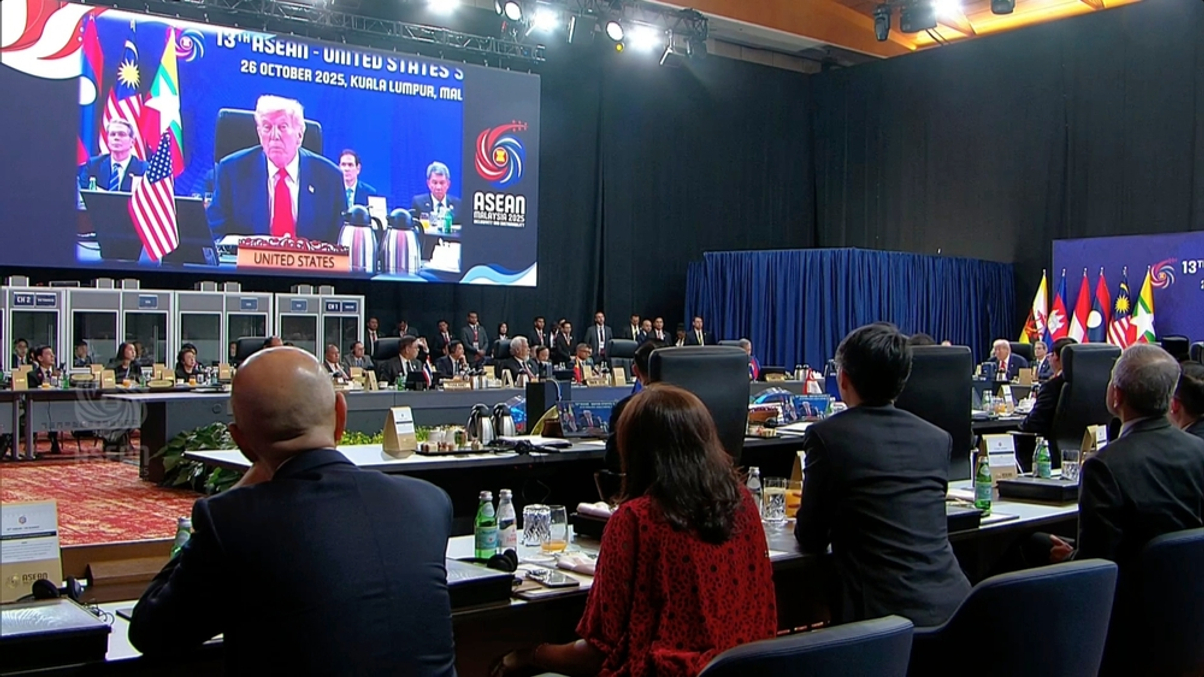Opinion: US-Southeast Asia trade deals offer less certainty than investors think

The Trump administration has moved quickly to formalise trade relationships across Southeast Asia, recently announcing completed agreements with Malaysia and Cambodia while advancing framework deals with other ASEAN nations.
These developments appear to have generated considerable optimism in investment circles about reduced regulatory uncertainty in the region. But this optimism may be misplaced.
I recently had candid conversations with two professionals who offered frank assessments of the current landscape: a senior analyst at a major institutional fund and a leading geopolitical adviser, both of whom requested anonymity given the sensitivity of ongoing negotiations and their institutional positions.
Their insights reveal a dangerous misunderstanding spreading through institutional investment circles about what these agreements actually deliver.
"We're treating these new US trade deals as green lights for increased allocation, but honestly, we're not sure what we're actually getting protection from," the senior analyst said.
This sentiment reflects how recent agreements are being interpreted as risk-reduction tools when they may actually represent new sources of uncertainty.
SIGNED DOCUMENTS, SHIFTING TERMS
The fundamental problem becomes clear when examining how US officials view these agreements.
"Even the signed documents, they sort of see as live documents or live agreements," the analyst said.
This perspective should alarm investors who expect trade deals to provide fixed policy frameworks. When agreements are treated as starting points rather than conclusions, the protection they offer becomes misleading.
Malaysia's semiconductor sector demonstrates this reality.
Despite completing what the Trump administration calls a "final agreement" on reciprocal trade, the deal only reduces US tariffs on Malaysian goods from 25% to 19%.
"One of the key objectives for Malaysia was to get certainty on semiconductor tariffs. It didn't get that. That's still left to be determined," the analyst said.
The deal also includes what some trade experts call a "poison pill" clause, allowing the US to unilaterally terminate the pact if Malaysia enters agreements with countries threatening "essential" American interests.
The deal also requires Malaysia to implement similar import restrictions against third countries if the US deems it essential for economic and national security.
Malaysia's semiconductor industry, which represents a substantial portion of the country's export economy, faces the same uncertainty today as before the trade deal was announced.
Cambodia faces similar challenges, with its textile exports subject to the same transshipment uncertainty and unilateral termination clauses that characterise the Malaysian agreement.
More concerning is the persistence of region-wide policy ambiguity that transcends individual country agreements.
"These deals that have been announced don't address this issue of transshipment, which the US is still yet to define exactly what it even means by transshipment, exactly how it is going to implement the threatened additional 40% of tariffs," the geopolitical adviser said.
Vietnam exemplifies this vulnerability most starkly.
"The country with the most uncertainty on the trade side in Southeast Asia at the moment is Vietnam, probably, and that is because it obviously is the most trade dependent amongst the major economies in terms of exports to the US. Vietnam is particularly exposed to the transshipment tariff, the so called 40% transshipment tariff," the adviser said.
Despite having framework agreements with Washington, Vietnam remains vulnerable to policy changes that could devastate its export-dependent economy.
NEW MARKET REALITY
Rather than concentrating investments in countries with US trade deals, companies are developing increasingly complex contingency strategies.
"I would say that there are genuine plans to diversify, but maybe the actual diversification is perhaps not happening yet. I think it's a sort of wait and see mode," the analyst said.
Traditional supply chain models are evolving accordingly.
"Amid all this uncertainty, there's now conversations about, do you need China plus two? And for that plus two, is it going to be India, or is it going to be another Southeast Asian country, or even do you need like Vietnam plus one, ASEAN plus one?"
The domestic backlash in Malaysia, where former Prime Minister Mahathir Mohamad described the agreement as "handing over" the country's independence, suggests these deals may face political sustainability challenges that create another source of policy uncertainty.
This environment demands fundamental changes in institutional investor approaches to regional allocation decisions.
"The days of geopolitical analysis being a nice to have, have definitely passed. And I think in this environment, it's increasingly critical for companies to work through the details of the geopolitical risks much more, and it's critically essential to investment decisions," the adviser said.
STRATEGIC RECOMMENDATIONS
Both professionals point toward a clear strategy: base Southeast Asian allocation decisions on structural economic factors rather than trade deal announcements.
Countries with fundamental advantages such as large domestic markets, natural resource endowments and geographic positioning will likely outperform those relying primarily on diplomatic agreements for protection.
Avoiding Southeast Asia entirely would be a mistake — the region's role in supply chain diversification and critical mineral production creates genuine long-term opportunities.
However, they recommend approaching these investments with frameworks that treat geopolitical uncertainty as permanent rather than temporary.
The most successful investment strategies will develop capabilities to navigate policy uncertainty rather than seeking protection from agreements that promise more stability than they can deliver. Institutional investors who thrive will treat trade deal announcements as starting points for analysis rather than conclusions.
If even signed agreements offer little protection from policy volatility, what does this mean for investment certainty in an increasingly fragmented global economy?


